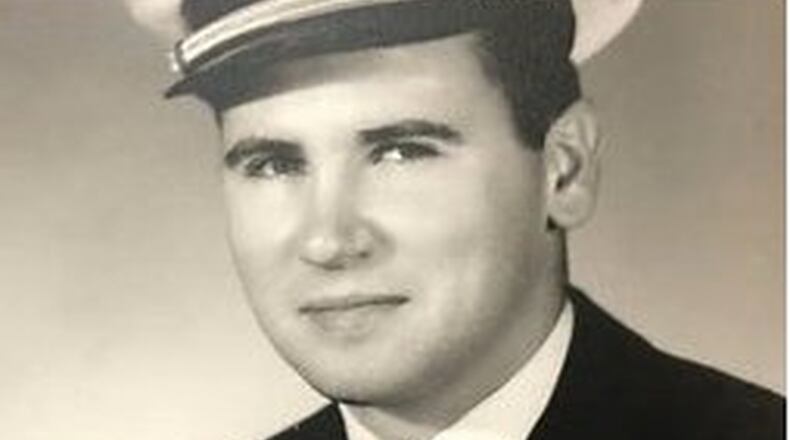Judge Hugh Robinson and close friend, Marietta attorney Steve Woodman, jokingly called their campaign work in 2008 “trench warfare.”
Two days a week for six months, the two crisscrossed Cobb County, putting up campaign signs for Robinson’s wife Dorothy. She was making a bid for a final term as a Cobb County Superior Court Judge and faced opposition.
“Drive up, find a place to park, unload the power auger and the signposts, put them in the ground, attach the sign, tamp down the dirt, load up the truck and head to the next location,” is how Woodman remembers it.
“When you spend that much time with someone, you get to know them pretty well,” he said.
A dedication to hard work, fairness and a broad and deep knowledge enabled Robinson to navigate complex cases as a federal bankruptcy judge in the 1980s and ’90s, Woodman said. His work left a lasting mark on a rapidly-growing city and state.
The retired U.S. Bankruptcy and Cobb County Magistrate Court judge died March 29 at Marietta’s Kennestone hospital of COVID-19. Robinson was 82. He is survived by his nephew Stephen Robinson. No services were planned because of the ongoing pandemic
Stephen Robinson lauded his uncle in a posted obituary in calling him “the son of Irish immigrants who rose from simple and humble beginnings to become the first member of his family to receive a college degree.”
Born in 1937 and raised poor in a tiny New York City apartment, Woodman said his friend “developed a sense of the need for equality and equal treatment. He didn’t believe in favoritism and privilege.” That moral underpinning coupled with an understated, respectful and even kindly demeanor won him respect from lawyers, plaintiffs and others on all sides of bankruptcy proceedings
Robinson’s path to the federal and later Cobb County bench had an unusual start. Heeding the call of the open sea, he attended the State University of New York’s Maritime College. He served a Navy hitch as a Lieutenant (Junior Grade) followed by a stint in the Merchant Marine.
The law then caught his eye, and armed with a law degree from New York’s St. John’s University, he was accepted into the FBI.
Former U.S. congressman Buddy Darden met Robinson in the summer of 1967 after the then-FBI agent transferred to Atlanta. The two attended a legal refresher course as Robinson worked for admission to the State Bar of Georgia.
“He had no pretense at all,” said Darden, “ Just very down to earth. He was reserved, a little hard to get to know him, but once you did, he was very easy to talk to.”
Woodman said: “He was a great conversationalist and a true student of history. I remember one time asking him why the Italian people didn’t speak Latin. He knew the answer right away. (Latin was the language of the upper class, not the working class.) He also knew the history of the British royals, backward and forward.”
Retired attorney and judge Ezra Cohen served with Robinson at the Northern District of Georgia U.S. Bankruptcy Court and said Robinson presided over cases incorporating major projects and firms, some having fallen on hard times during a recession. Serving in the district’s Rome court in the 1980s, Robinson steered several major carpet mills through bankruptcy.
The mid 1990s brought a high-profile proceedings involving pioneering modem-maker Hayes Microcomputer of Norcross. It was a messy, drawn-out affair with involving competing stakeholder and takeover plans, and demands made by the founder’s ex-wife.
Cohen said that Robinson’s penchant for “rehabilitation and reorganization” and a vast knowledge of business law helped to redefine Atlanta and North Georgia’s business landscape.
After retirement from the federal bench, Robinson took a post in Cobb County, serving as a magistrate court judge from 2000 to 2017. It was a far cry from the rarified air of bankruptcy law — handling small claims, signing arrest warrants, bond revocations and the like. Associates said a pure love of the law drove him to continue.
Cohen said the judge’s legacy boils down to “I am fair. I am kind. I am courteous, and I am going to promptly rule.”
About the Author
The Latest
Featured


